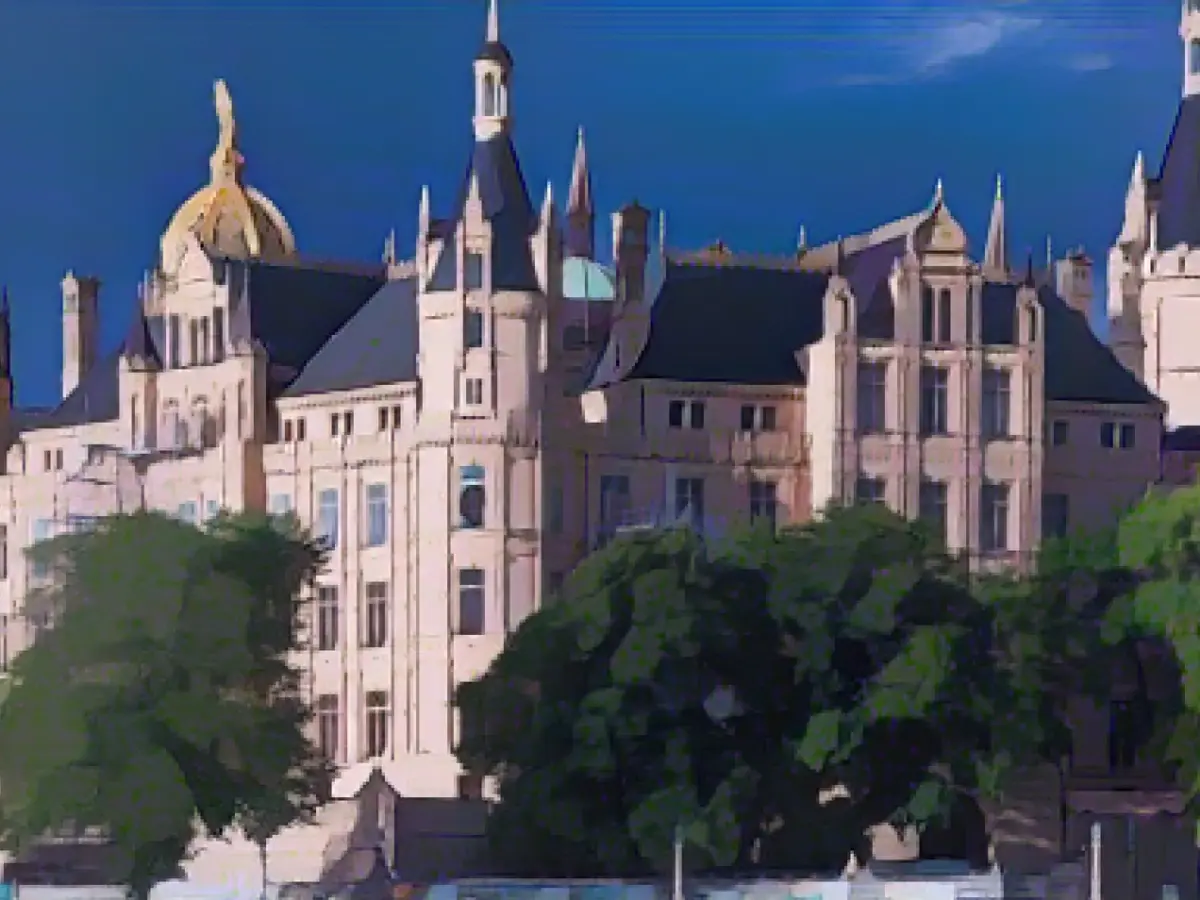Household - Controversial debate on the state budget in the state parliament
On behalf of the state government, Education Minister Simone Oldenburg (Left Party) has called for broad support for Mecklenburg-Vorpommern's double budget for 2024 and 2025. She rejected the CDU opposition's proposal to postpone the vote on the budget to the beginning of 2024 until clarification of the grants expected from the federal government during the general debate in the state parliament in Schwerin on Wednesday. If the budget is not approved as planned, important projects will not be able to start in the new year. As examples, Oldenburg cited investments in school construction, relieving prospective nursing staff of school fees and additional funding for fire departments and tourism.
"The federal government is in a budget crisis. Mecklenburg-Vorpommern is not. We remain capable of acting," emphasized Oldenburg, who spoke on behalf of Minister President Manuela Schwesig (SPD), who was ill. With the double budget, the coalition would continue to ensure high levels of investment, totaling 3.3 billion euros in both years. The focus will be on promoting economic development, expanding infrastructure, education and childcare as well as strengthening social cohesion.
According to the plans of the red-red coalition, expenditure totaling more than 11 billion euros is planned for each of the next two years. Personnel expenditure will rise to record levels, to 2.7 billion euros in 2024 and 2.9 billion euros in the following year. Nevertheless, no new debts are to be incurred. However, the state will have to draw on its reserves to cover the high expenditure. Grants of 700 million euros were expected from the federal government for the coming years. However, the payments are still uncertain due to the federal government's precarious budget situation. It was only after a tough struggle that the leaders of the traffic light coalition reached an agreement on the federal budget for 2024 in Berlin on Wednesday. Following the budget ruling by the Federal Constitutional Court, the federal government was forced to make cuts and savings.
Massive criticism came from the opposition. The 450 or so amendments to the draft budget made it clear that the government plans had considerable deficits, said AfD parliamentary group leader Nikolaus Kramer. He also lamented what he saw as excessive spending on refugees. He accused the government of neglecting the interests of the German population. "We are not willing to sacrifice the interests of the German people to the all-round carefree provision of every asylum seeker and the profit motive of the asylum industry," said Kramer. Green parliamentary group leader Harald Terpe accused Kramer of using the language of "criminals", "who have destroyed the homeland in Germany and the world". This was unacceptable.
CDU parliamentary group leader Franz-Robert Liskow accused the coalition of missing the opportunity to realign the state budget in line with the times. "Important future topics such as digitalization and artificial intelligence are being ignored," he said. In addition, the red-red government was violating the requirements of the Federal Constitutional Court by holding on to the 400 million euro special fund for the university hospitals, which is fed by the Corona Protection Fund. "Red-Red has nothing to offer other than hopes of rising tax revenues to save the SPD and the Left from unpleasant tasks," Liskow summarized.
Schedule of the state parliament session with links to laws and motions Medium-term financial planning with tables
Read also:
- A clan member is punished here
- Traffic lawyer warns: Don't talk to the police!
- Will he be convicted as Jutta's murderer after 37 years?
- He also wanted to kill his cousin
- The CDU, being the opposition, disagreed with the Left Party's Education Minister Simone Oldenburg's call for immediate approval of Mecklenburg-Vorpommern's double budget.
- The budget proposal included substantial investments in education, such as school construction, relief for nursing students, and additional funding for tourism.
- Nikolaus Kramer, leader of the AfD parliamentary group, criticized the budget, citing deficits and excessive spending on refugees.
- Franz-Robert Liskow, leader of the CDU parliamentary group, accused the red-red coalition of missing opportunities to realign the state budget and ignoring future topics like digitalization and artificial intelligence.
- According to Liskow, the red-red government was also violating the Federal Constitutional Court's requirements by holding onto a special fund for university hospitals.
- The controversial debate on the state budget in the Mecklenburg-Vorpommern's state parliament highlighted rhetorical clashes between the government and opposition parties regarding budget priorities and the federal government's financial situation.
- Despite the heavy criticism, the SPD and the Left Party in Mecklenburg-Vorpommern's state parliament continued their efforts to pass the double budget, as the financial and economic situation of the region cannot be ignored.
Source: www.stern.de








